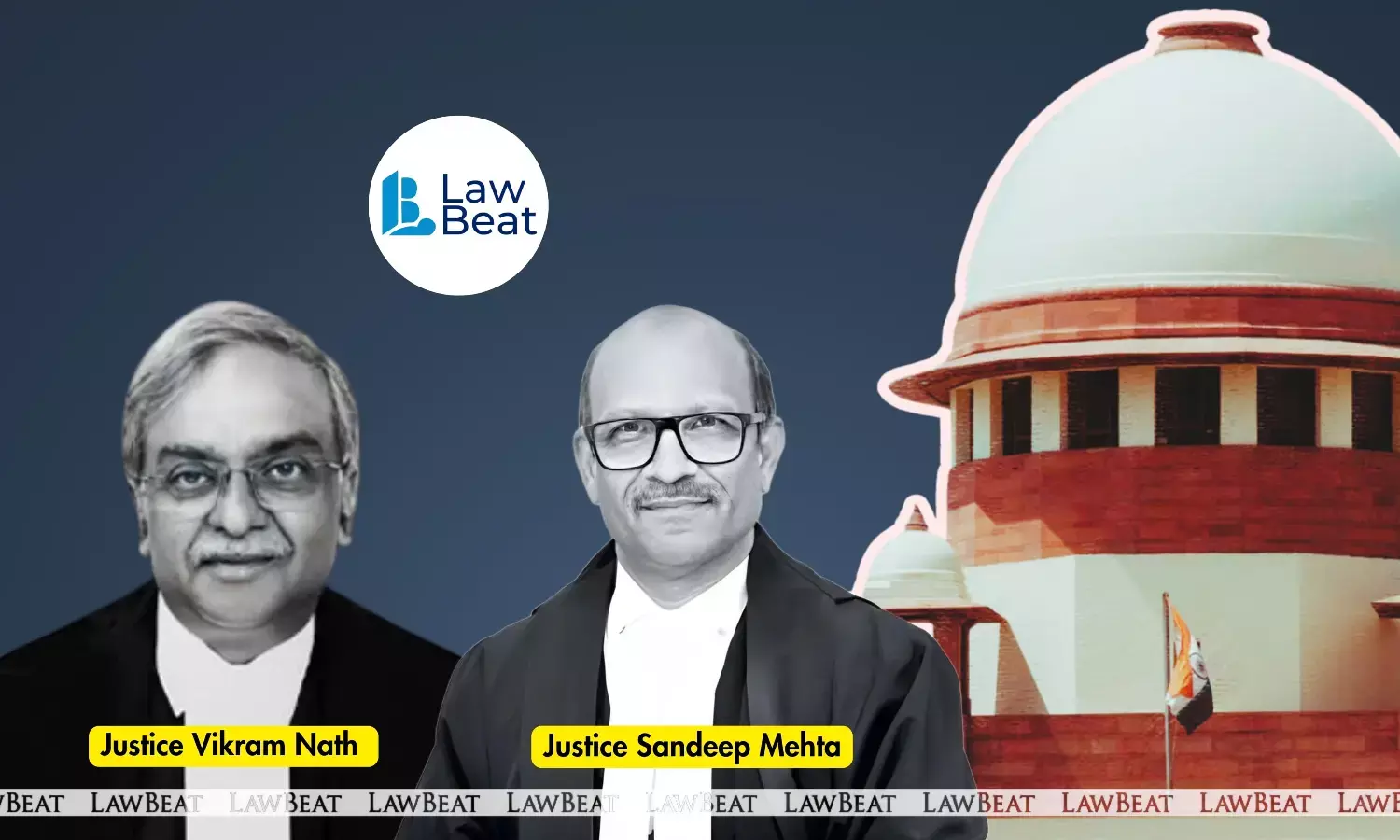Can an Accused Move High Court Directly for Anticipatory Bail? Supreme Court Refers Issue to Three-Judge Bench

Supreme Court of India, Justices Vikram Nath, Sandeep Mehta
The Supreme Court on Wednesday referred to a three-judge bench the question of whether it is the choice of the party to directly approach a High Court for anticipatory bail, or if it is mandatory to first move the sessions court.
The Bench of Justices Vikram Nath and Sandeep Mehta said the issue required authoritative determination given the differing practices followed across states, particularly noting that the Kerala High Court has been regularly entertaining such applications directly.
“This matter requires to be heard by a three-judge bench,” the Court ordered, adding that it will be listed once the larger bench is constituted.
The Court had earlier appointed Senior Advocate Siddharth Luthra as amicus curiae to assist in examining the legal framework governing anticipatory bail under the Bharatiya Nagarik Suraksha Sanhita, 2023 (BNSS), the new criminal procedure code replacing the Code of Criminal Procedure (CrPC).
On September 8, the Bench had expressed concern over what it described as the “regular practice” of the Kerala High Court entertaining anticipatory bail applications directly without the litigant first moving the sessions court.
“One issue which is bothering us is that in the Kerala High Court, there seems to be a regular practice that the High Court entertains anticipatory bail applications directly without the litigant approaching the sessions court. Why is that so?” the Bench had asked during the previous hearing.
Referring to the procedural hierarchy under both the CrPC and BNSS, the Bench observed that such a practice appeared unique to Kerala. “It doesn’t happen in any other state. Only in the Kerala High Court, we have noticed that regularly applications are being directly entertained,” it noted.
The Court’s observations came while hearing a plea filed by two petitioners challenging a Kerala High Court order rejecting their request for anticipatory bail. The Supreme Court pointed out that in the case at hand, the applicants had bypassed the sessions court altogether, a trend that, in its view, could deprive the higher court of a complete factual record.
The Bench observed that the High Court’s regular practice of entertaining such petitions directly may lead to procedural inconsistencies and undermine the hierarchy envisaged in the criminal law framework.
“We are inclined to consider this aspect and decide the issue as to whether the option to approach the High Court would be at the choice of the party or it should be mandatory that the accused should first approach the sessions court,” the Bench said in its order.
The Supreme Court further observed that the sessions court, being the court of first instance, is often better equipped to examine the factual matrix and gather relevant details, which may not be fully presented before the High Court if the latter is approached directly.
Accordingly, the Apex Court issued notice to the Kerala High Court through its Registrar General, seeking its response on the procedural practice in question.
